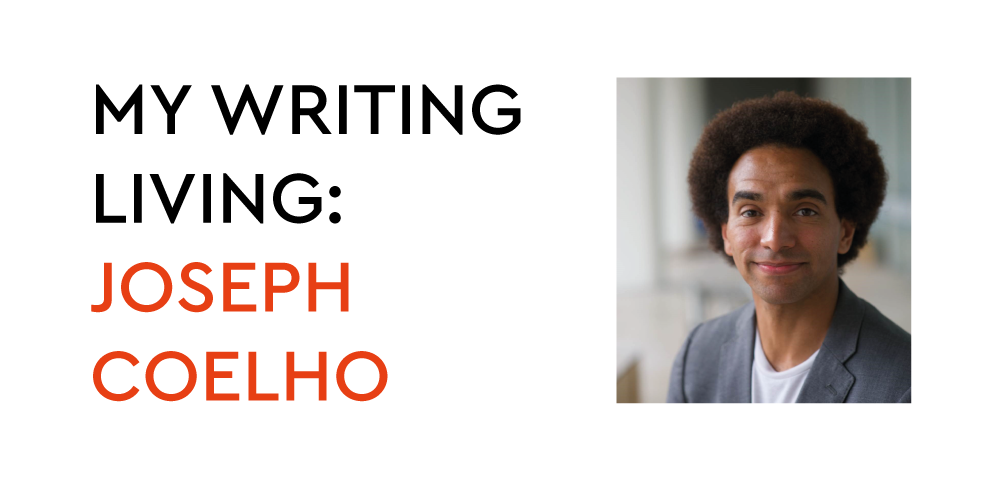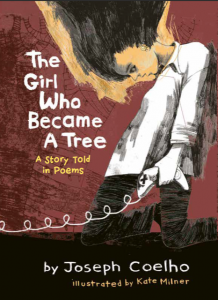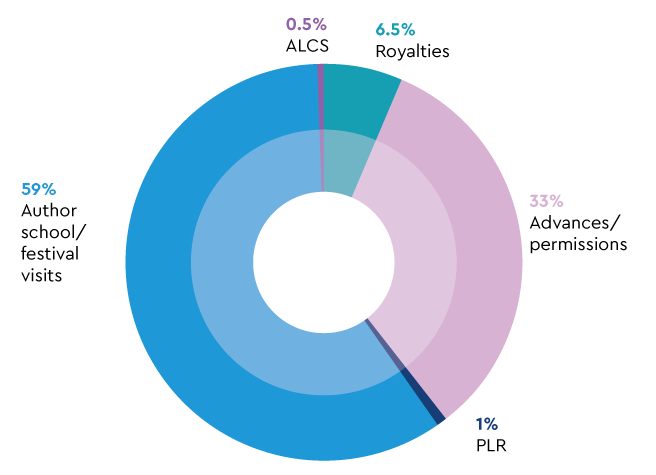
MY WRITING LIVING: JOSEPH COELHO
Award-winning children’s poet, Joseph Coelho tells us how his extensive grassroots experience of performing his work in schools and theatres has underpinned his successful career as a published writer.
Like many writers, performance poet and playwright, Joseph Coelho spent years learning – and perfecting – his craft prior to being published. Born in London, he grew up in a tower block in Roehampton with his mother and sister, and says that as a child, it never occurred to him that he could be a writer, because “writers were special people who existed elsewhere in other far off places.”

Coelho came to writing through performance; first at school where he did Theatre Studies A level, and then through acting in and directing plays while at UCL where he studied for an archaeology degree. From university he went straight into various jobs with theatre companies, and at the same time, wrote poetry and performed it at gigs that were mostly unpaid. To support himself, he took a day job in the transport planning department at Camden Council, until performance poetry organisation ‘Apples and Snakes’ started offering him work in schools. “They also got me gigs where I’d shadow other poets like Francesca Beard and Jacob Sam La Rose”, Joseph tells me when we speak via Skype. By the early Noughties, the schools work had taken over – thanks largely to a creative learning initiative called ‘Creative Partnerships’ which made money available to put artists into schools – and Coelho was able to give up the day job at the council, although for a long time he kept his early morning job in a gym just in case.
“I had a run of seven years doing ‘Creative Partnerships’ work where myself and other artists would get 30 week-long projects working alongside teachers in schools up and down the country,” Joseph tells me. “It was exhausting but brilliant and I learned a great deal. I was still doing poetry gigs in the evening at that time, but I found myself writing more and more poems for young people because I was spending so much time with them. I worked with several children’s theatres too, like the Polka Theatre and the Unicorn Theatre, and wrote plays for children as well. This and the school visits kept me going financially, and eventually I was able to leave the gym and concentrate on the schools’ work and on my writing”. Joseph’s broad creative experience with young people, both in schools and in theatres helped him understand how to devise ways into literacy via poetry. “A lot of my work centres around demystifying poetry and making it feel more accessible,” he says.
A lot of my work centres around demystifying poetry and making it feel more accessible
Then a chance meeting with children’s publisher Janetta Otter-Barry at the London Book Fair in 2012 led to the publication of 2014 of Joseph’s first book of poems for children: Werewolf Club Rules (“sink your teeth into more than 50 delicious poems and get ready to howl with laughter”). It went on to win the 2015 CLiPPA from the Centre for Literacy in Primary Education (CLPE). I ask Joseph how important winning this award – co-sponsored annually by ALCS – was in helping to launch his writing career. “It was brilliant: it opened so many doors. From being relatively unknown in the publishing world, that same day I was whisked off to BBC Radio 4 to be on Front Row and I later wrote a piece for The Guardian. And I met lots more editors in publishing as a result too.”
Joseph’s average annual income:

Fast forward six years and Joseph has now published more than a dozen books with five different children’s publishers. “So now I’m in a position where I don’t have to do as many school visits. They still make up the bulk of my income but royalties and book advances are slowly increasing each year.” Not content with sitting around and waiting for this to happen however, Joseph has also toured several productions of his own plays to libraries and schools over the past four years. “For my last two shows, I did over 100 performances,” he tells me. “It was partly out of a desire to find another income stream while the books were building, but also as a way of having complete control over my work by setting up my own theatre company.” More recently, Joseph embarked on a marathon self-funded, countrywide tour in his camper van, in a bid to visit and perform his poetry in every one of the 209 library authorities in the UK during 2020. “I wanted to raise the importance of libraries because they are so key in getting books to people who wouldn’t otherwise be able to access them. We didn’t have a lot of books when I was growing up but my Mum always took us to the library which was within walking distance. The fact that we had a library that was local to us was one of the reasons I became a writer.” Not surprisingly, libraries also feature regularly in Joseph’s work, notably in his first picture book, Luna Loves Library Day and in his latest verse novel for older children, The Girl Who Became a Tree.
I wanted to raise of the importance of libraries because they are so key in getting books to people who wouldn’t otherwise be able to access them.
Sadly, the global pandemic has put paid (for now) to the library marathon and to Joseph’s usually hectic schedule of school and festival visits. “COVID-19 has had a huge impact financially. I’m lucky in that I’ve had five books out this year with more forthcoming so that has been enough to keep the wolf from the door. But I’ve made less than half than I normally would in a year.” Have online events helped to make up some of the deficit? “I have done a lot of online events but many of them have been unpaid. I also question how many of them lead to book sales. I think it all depends on how they’re organised: I’ve done some sessions in collaboration with bookshops where there’s a very clear link with book purchasing. But it’s become a very crowded market where you’re competing for people’s attention among so much other fantastic content. For me, it’s about finding a balance between doing the paid gigs and the free ones. Because actually filming the content takes a huge amount of time. I was very naïve at the beginning and I said yes to everything. And then I realised that a 10-minute video can take the best part of a day to get right. So I’m very grateful to those organisations who are paying for online content. It hasn’t by any means replaced my usual income from live school and festival visits. But it has definitely helped.”
Like so many writers, Joseph is hoping that 2021 will bring a return to normality as far as his writing living is concerned. In the meantime, he has five new books scheduled for publication in 2021. He also remains grateful for his ALCS payments. “They’re a lovely surprise each year because you never know how much you’re going to get. But the payments slowly increase as you have more books published which is great. It’s also interesting to see which books are being photocopied… and then to imagine: who’s doing that?”
